65 Resources for Racial and Health Equity

It’s important for individuals, groups and policymakers to understand how to approach racial equity and promote more racial equality in communities, schools, healthcare systems and other areas. These articles, toolkits, research pieces and other materials provide information about issues facing Black Americans, indigenous communities and other minority groups, and offer strategies for taking action to advance racial equity across society—particularly in healthcare.
Table of Contents
General Racial Equity Resources
These sites provide toolkits and information about racial equity for organizations and government agencies.
Racial Equity Toolkits for Government Agencies and Other Groups
The Annie E. Casey Foundation: A Toolkit for Centering Racial Equity Within Data Integration
This toolkit from the Annie E. Casey Foundation offers information about the data life cycle, considerations for assessing racial equity algorithms, stakeholder mapping processes and identifying causes of racial equity issues.
City of Portland, Oregon: Racial Equity Toolkit
Portland’s Office of Equity and Human Rights created this toolkit to help government agencies identify racial disparities, promote racial equity and engage communities of color in decision-making.
The Greenlining Institute: Racial Equity Toolkit (PDF, 1.4MB)
The Greenlining Institute advocates for economic and racial justice. Its toolkit provides a framework for focusing advocacy work around racial equity.
Michigan Department of Civil Rights: Racial Equity Tools, Strategies and Solutions
The Michigan Department of Civil Rights’ racial equity page includes a toolkit for government agencies and organizations, as well as information on racial equity training and the scope of racial equity work.
Seattle Race and Social Justice Initiative: Racial Equity Toolkit to Assess Policies, Initiatives, Programs and Budget Issues (PDF, 424KB)
The Seattle Race and Social Justice Initiative created this toolkit to address the racial equity effects of policies, programs and budget issues across different government departments. It aims to promote racial equity throughout the community by setting racial equity goals, involving stakeholders, determining potential impacts, minimizing harm, raising awareness and creating accountability.
Other Organizations for Racial Equity
Local and Regional Government Alliance on Race & Equity: Tools & Resources
The Local and Regional Government Alliance on Race & Equity (GARE), a government network that promotes racial equity and equal economic opportunities, offers this roundup of event materials, issue papers, videos and other resources for racial equity.
Race Forward
Race Forward works to eliminate systemic racism and promote racial justice in policies, institutions and culture. The organization serves as the parent group for the Government Alliance on Race & Equity, publishes the news site Colorlines, and hosts the racial justice conference Facing Race.
Racial Equity Tools
Racial Equity Tools is an online library that offers educational materials, research, tips and tools to help groups and individuals understand and work toward racial equity in governments, organizations and communities.
General Health Equity Resources
These articles and websites provide general insight on health equity.
News
Harvard Business Review: “A Data-Driven Approach to Addressing Racial Disparities in Health Care Outcomes”
This Harvard Business Review article explores lessons learned from Brigham Health on better understanding COVID-19’s impact on diverse populations, and strategies that can help reduce the harm of structural racism on health.
HealthCity: “The Physician’s Role in Racial Equity”
This article in HealthCity, a publication of the Boston Medical Center Health System, encourages physicians to reflect on their own biases, consider their privilege and engage in anti-racist work to address disparities in healthcare.
Medical News Today: “Racism in healthcare: What you need to know”
This article talks about racial discrimination in healthcare systems—specifically, disparities in areas including pain treatment, emergency care, pregnancy, chronic illness and mental health.
Stanford Social Innovation Review: “Advancing Equity in Health Systems by Addressing Racial Justice”
This article discusses lessons learned from the Institute for Healthcare Improvement’s work with health systems in the United States, Brazil and Ethiopia.
Research and Statistics
American Journal of Public Health: “Implicit Racial/Ethnic Bias Among Health Care Professionals and Its Influence on Health Care Outcomes: A Systematic Review”
This study evaluated implicit racial and ethnic bias with healthcare professionals and how they affect healthcare outcomes.
Annual Review of Public Health: “Racial and Ethnic Disparities in the Quality of Healthcare”
This article discusses widespread health disparities between ethnic and racial groups and offers a top-down approach to reducing inequities.
BMC Medical Ethics: “Implicit bias in healthcare professionals: a systematic review”
This review of implicit bias in the healthcare industry found a positive correlation between the level of bias in healthcare professionals and lower quality of care.
Current Directions in Psychological Science: “Discrimination and the Health of African Americans: The Potential Importance of Intersectionalities”
This article explains the possible importance of intersectionality in African Americans’ experience with discrimination in health settings.
International Journal of Environmental Research and Public Health: “Reducing Racial Inequities in Health: Using What We Already Know to Take Action”
This paper outlines crucial steps to reduce racial health inequities, including minimizing the effects of systemic racism, boosting access to healthcare and building political will to support health equity.
Other Resources
American College of Cardiology: “Implicit Bias: Recognizing the Unconscious Barriers to Quality Care and Diversity in Medicine”
This article from the American College of Cardiology offers information on how implicit bias affects healthcare systems and strategies for eliminating it.
American Medical Association: COVID-19 health equity resources These resources from the AMA cover structural issues that contribute to health inequity and could worsen the effects of COVID-19 on minority populations.
American Psychological Association: “How does implicit bias by physicians affect patients’ health care?”
This article from the American Psychological Association explains implicit bias in healthcare, factors that affect a patients’ perception of their care, and actions that can improve patient-provider interactions.
American Public Health Association: Health Equity
This page from the American Public Health Association contains health equity fact sheets and reports on topics including children’s environmental health, housing, water contamination and educational equity.
Centers for Disease Control and Prevention: Health Equity Considerations and Racial and Ethnic Minority Groups
This CDC article explores why minority groups are more at risk of developing COVID-19, and how to change this trend to protect individuals and groups.
Institute for Healthcare Improvement: “How to Reduce Implicit Bias”
The Institute for Healthcare Improvement explains how to recognize and stop implicit bias in policies, structures and patient care.
Michigan Department of Health & Human Services: Health Equity, Implicit Bias, Stigma & Antiracism
This webpage offers online courses, webinars and training programs to promote maternal and infant health equity.
Minnesota Department of Health: Health equity resources by practice
The Minnesota Department of Health offers a roundup of resources to help spread awareness, advance organizational commitment to equity, engage communities, influence policy and collect data on health equity.
Tacoma-Pierce County Health Department: “Racism Hurts Everyone: Addressing this public health crisis in Pierce County”
This article, by the Tacoma-Pierce County Health Department in Washington, positions racism as a public health crisis and offers steps to dismantle systemic racism through community partnerships.
Texas Medical Center: “‘Best intentions’ won’t solve implicit bias in health care”
This article from the Texas Medical Center discusses the effects of implicit bias in medical settings and how training can help challenge providers’ assumptions about patients.
Vanderbilt University Medical Center: Health Equity Toolkits
Vanderbilt University Medical Center’s Office of Health Equity offers more than 10 resources that provide insight on health equity, health literacy, culturally competent care, unconscious bias and other topics.
Racial Equity in Vaccination
These articles and resources offer information about racial equity in vaccinations, particularly for COVID-19.
News and Blogs
American Medical Association: “How to overcome COVID-19 vaccine hesitancy among Black patients” This American Medical Association article explores how the Black community is hesitant to get COVID-19 vaccines, and strategies for overcoming distrust and promoting vaccination in minority communities.
Bill of Health: “Racial Inclusivity in COVID-19 Vaccine Trials”
Bill of Health, a Harvard Law School publication, discusses the importance of clinical trials for vaccinations and the history of medical racism that might give minority populations pause when it comes to participating in clinical trials.
HuffPost: “Surgeon General: Black Americans’ Distrust In Vaccine Comes From History Of Medical Racism”
This HuffPost article, based on U.S. Surgeon General Jerome Adams’ comments, focuses on why communities of color mistrust COVID-19 vaccines, a sentiment fueled by years of medical racism.
KFF: “Addressing Racial Equity in Vaccine Distribution”
This Kaiser Family Foundation article talks about COVID-19 vaccination distribution and barriers to vaccination for different populations.
Minnesota Public Radio: “How medical racism created vaccine distrust”
In this report, MPR News focuses on distrust in COVID-19 vaccines because of racism in the healthcare system, and how medical providers can rebuild trust with communities of color.
National Public Radio: “Fighting COVID-19 Vaccine Mistrust In The Black Community”
This NPR story explains why many Black Americans feel a sense of mistrust around COVID-19 vaccines, and how to overcome that mistrust.
TIME: “Fueled by a History of Mistreatment, Black Americans Distrust the New COVID-19 Vaccines”
This Time article talks about historic medical malpractice involving the Black community, the lack of diverse participants in COVID-19 vaccine trials, and the hesitancy of Black patients to get vaccinated.
Research and Statistics
American Journal of Public Health: “The Impact of Vaccine Concerns on Racial/Ethnic Disparities in Influenza Vaccine Uptake Among Health Care Workers”
This research in the American Journal of Public Health explores racial disparities among healthcare workers regarding vaccination against influenza. Black, Hispanic and Asian healthcare workers were less likely to receive a vaccine than their non-Hispanic white peers.
Office of Minority Health: Immunizations and American Indians/Alaska Natives
This page breaks down data on immunization rates by age group for American Indians and Alaska Natives. It offers statistics on vaccination rates for conditions including influenza, hepatitis B, measles, tetanus and polio.
Vaccine Information for the General Public
American Public Health Association: Vaccines
This page from the American Public Health Association links to information on vaccines, including the safety and effectiveness of vaccines for conditions ranging from COVID-19 to human papillomavirus (HPV).
Centers for Medicare & Medicaid Services: Immunization and Vaccine Resources
The Centers for Medicare & Medicaid Services offers resources on immunization and vaccines and how to keep safe during flu season.
Vaccines.gov: COVID-19 (Coronavirus)
This site from the U.S. Department of Health and Human Services provides information about COVID-19 vaccinations, including side effects, who should receive vaccines and safety.
Indigenous People and Health Equity
These resources cover how health inequity affects indigenous populations.
News
National Public Radio: “California May Consider ‘Historical Injustice’ When Allocating COVID-19 Vaccine”
This NPR story discusses the disproportionate impact of COVID-19 on American Indians, points out health disparities for indigenous populations, and argues for prioritizing vaccines for indigenous people in California.
Research and Statistics
Academic Medicine: “Educating for Indigenous Health Equity: An International Consensus Statement”
This research discusses the role of medical education in perpetuating inequity in healthcare and offers solutions for improving healthcare for indigenous populations.
American Medical Association Journal of Ethics: “Racialization as a Barrier to Achieving Health Equity for Native Americans”
The article explains the problems with classifying American Indians and Alaska Natives as a single racial category in clinical settings.
BMC Health Services Research: “Enhancing health care equity with Indigenous populations: evidence-based strategies from an ethnographic study”
This research offers strategies for promoting health equity among indigenous populations in Canada and internationally.
Indian Health Service: Disparities
This fact sheet from the Indian Health Service includes statistics that compare mortality rates between American Indian/Alaska Native populations and all other groups in the U.S. for causes of death including heart disease, cancer, diabetes and other conditions.
Other Resources
American Bar Association: “Native Americans: A Crisis in Health Equity”
The American Bar Association outlines the health equity challenges American Indians face and offers solutions to create more equitable healthcare for native populations.
Centers for Medicare & Medicaid Services: 10 Important Facts about Indian Health Service and Health Insurance (PDF, 3.6MB)
This pamphlet explains why Indian health benefits may not be enough to cover the healthcare needs of American Indians and Alaska Natives, and offers information about the Health Insurance Marketplace.
Mental Health America: Healthcare Disparities Among Black, Indigenous, and People of Color
Mental Health America offers a roundup of organizations, grants, research and other resources surrounding the mental health of minority communities.
National Congress of American Indians: Health Care
The National Congress of American Indians outlines the wide-ranging healthcare disparities experienced by American Indians and Alaska Natives and opportunities for improving the health of indigenous communities.
National WIC Association: Prioritizing Health Equity to Protect Native Lives
This page from the National WIC Association (NWA), which represents 33 Native American state WIC agencies, explains steps the NWA is working to promote health among native women and children through supporting food preferences, maternal health initiatives and other actions.
Northern Arizona University Center for American Indian Resilience: American Indian Health Equity/Disparities
This Northern Arizona University page offers data and other information on American Indian and Alaska Native health disparities.
Urban Indian Health Institute: Indigenous Health Equity
The article from the Urban Indian Health Institute suggests combining traditional and cultural education to promote health equity among American Indians and Alaska Natives.
Wellesley Institute: First Peoples, Second Class Treatment (PDF, 3MB)
This report from the Wellesley Institute outlines the role race plays in the health of indigenous people in Canada.
Additional Racial Equity Reading
These nonfiction books provide additional information on structural racism and strategies for creating an equitable society.
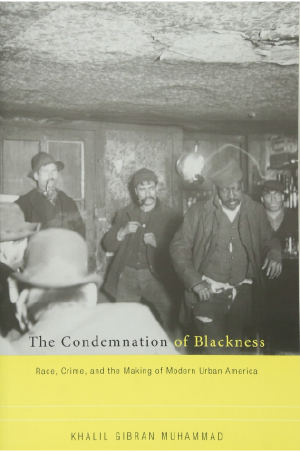
The Condemnation of Blackness, by Khalil Gibran Muhammad
This book traces the roots of Black people being depicted as dangerous, and the concept’s influence on policies and urban development.
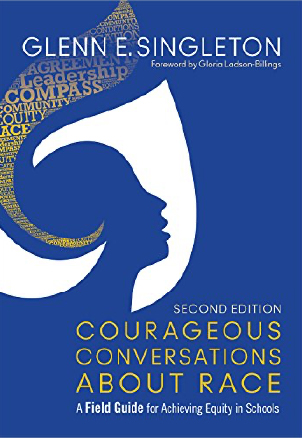
Courageous Conversations About Race, by Glenn E. Singleton
This book lays out a plan for achieving equitable school systems and provides tools for educators to create classrooms and curricula that promote educational equity.

From #BlackLivesMatter to Black Liberation, External link by Keeanga-Yamahtta Taylor
This book discusses historic and current racism, structures that perpetuate inequality, and the Black Lives Matter movement’s role in pushing for Black liberation.

How to Be an Antiracist, by Ibram X. Kendi
This nonfiction book positions antiracist ideas as antidotes to racism and proposes steps toward building an equitable world.
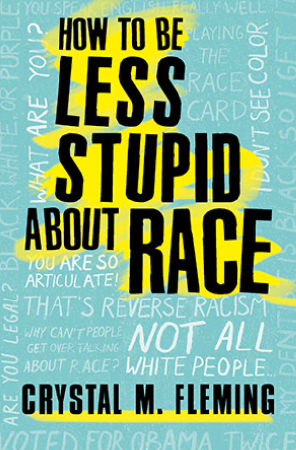
How to Be Less Stupid About Race, by Crystal M. Fleming
This book bursts racial misconceptions and stereotypes and calls for challenging white supremacy and oppression.
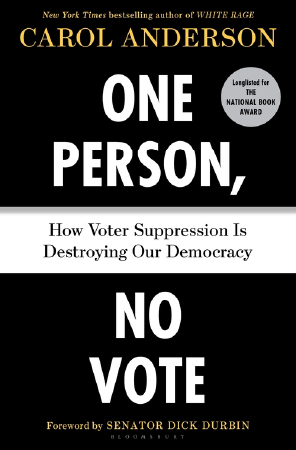
One Person, No Vote, by Carol Anderson
This book discusses voter suppression since the Supreme Court’s 2013 Shelby ruling, which allowed districts to change voting requirements without the Justice Department’s approval.
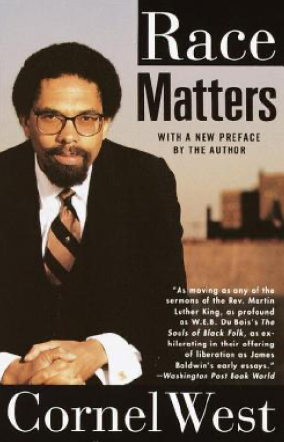
Race Matters, by Cornel West
This collection of essays discusses important flashpoints in African American history, and the Black community’s struggle to break into mainstream society without losing their culture.
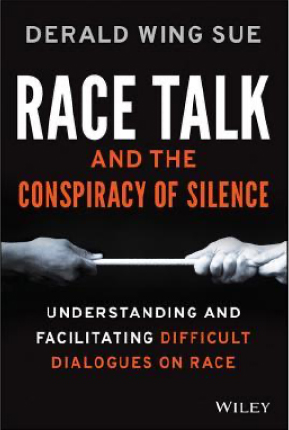
Race Talk and the Conspiracy of Silence, by Derald Wing Sue
This book offers tools for having difficult conversations about race in productive, honest and open ways.
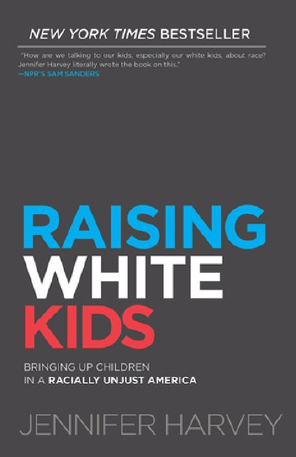
Raising White Kids: Bringing up Children in a Racially Unjust America, by Jennifer Harvey
This book provides information for parents on raising anti-racist white children.
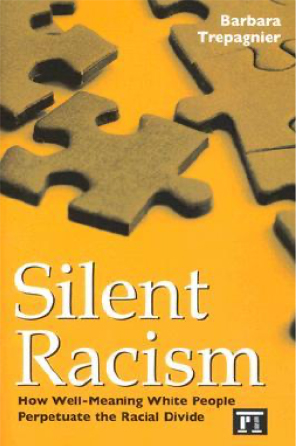
Silent Racism: How Well-Meaning White People Perpetuate the Racial Divide, by Barbara Trepagnier
This book studies the attitudes of white people who claim to be “not racist” and explains how they contribute to institutional racism.
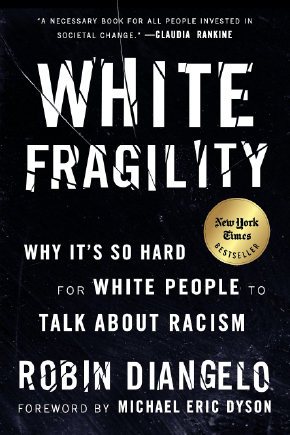
White Fragility, by Robin DiAngelo
This book explains why white people have difficulty openly discussing racism.
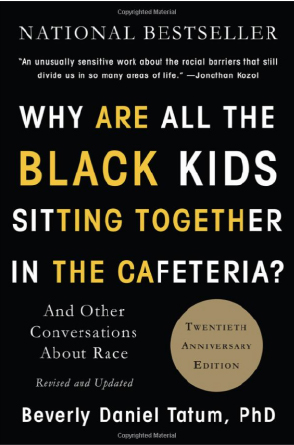
Why Are All the Black Kids Sitting Together in the Cafeteria? by Beverly Daniel Tatum
This book explores self-segregation among different racial groups and argues for the importance of discussing racial identities to promote communication between those groups.
Please note that this article is for informational purposes only. Individuals should consult their health care provider before following any of the information provided.
